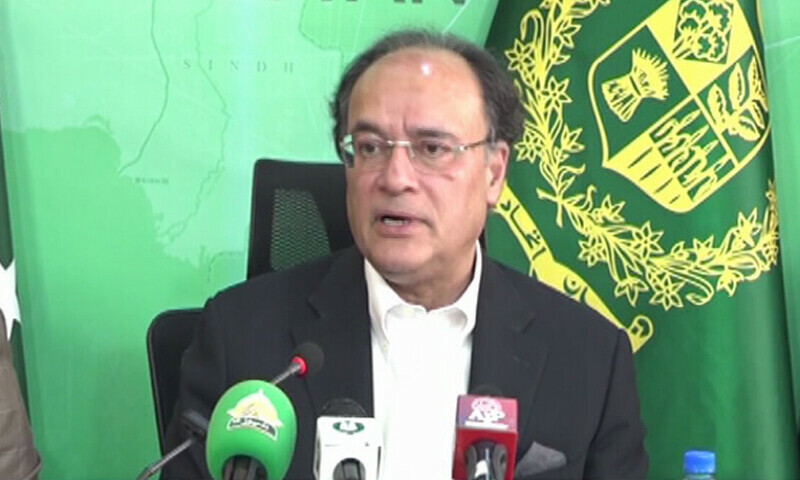Finance Minister Muhammad Aurangzeb on Saturday said the benefits of the reduction in inflation should be transferred to the people and the Economic Coordination Committee of the Cabinet (ECC) has taken new steps to monitor the situation.
Pakistan’s consumer price index (CPI) inflation rate maintained a sharp deceleration trend on Thursday, hitting a three-decade low of 0.7 per cent year-on-year (YoY) in March.
The current situation in Pakistan reflects disinflation, which signifies a slowdown in inflation. In contrast, deflation occurs when the general price levels decline.
Addressing a news conference in Islamabad on Saturday, Aurangzeb said: “[The benefits of] the reduction in inflation should be passed on to the people. The ECC is taking steps to reduce inflation.
“The ECC is keeping a special eye on inflation, and it has taken new steps to monitor the situation,” he added.
He highlighted that an International Monetary Fund (IMF) mission would be here in mid-May, denying reports of one being currently in town. He also said that a Pakistani delegation would leave for the US to discuss the new tariffs.
The minister elaborated that two committees were formed for this purpose including a steering group, led by himself and a working group, headed by the commerce secretary.
He added that there were meetings over the last couple of days and will continue with a view to transform challenges into opportunities.
“You should never let a good crisis go to waste. We are looking at it both as a challenge as well as an opportunity,” he said, adding that the government was working on a package and when finalised, it could go forward for discussions with the US administration.
The finance minister hoped that the new tariffs situation could be turned into a win-win situation for both Pakistan and the US.
The minister also observed that there has been a significant decline in the interest rate and there is potential for further reduction.
The central bank’s policy rate, after being slashed by 1,000bps from 22pc since June 2024 in six intervals, now stands at 12pc.
Aurangzeb also promised that in the upcoming fiscal year, a system for salaried individuals to pay taxes themselves will be implemented.
He mentioned that Pakistan has achieved macroeconomic stability, state-run Radio Pakistan reported.
He said we cannot squander this opportunity and have to change the DNA of the economy. He emphasised that there should be exports in each sector, expressing satisfaction that the auto sector has started exports in the last two months, Radio Pakistan added.
Aurangzeb said the government is undertaking structural reforms to make the current IMF programme the last one.
On the taxation side, the finance minister said the tax to GDP ratio is to touch 10.6pc by the end of this fiscal year, which is an increase of 1.8pc in one year. He said the tax to GDP ratio will be taken to 13.5pc, the report said.
He mentioned that the Federal Bureau of Revenue’s (FBR) revenue collection will increase by 32.5pc this year, emphasising that they are expanding the tax base.
He highlighted that a sum of Rs413bn was collected from the traders, which is up from Rs189bn rupees last year. He said 105bn rupees were also collected from new tax filers, according to the state broadcaster.
Aurangzeb was quoted as having said that the process of privatisation will be accelerated. On the external front, the finance minister said there is a rise in foreign exchange reserves on the back of very strong remittances. “He was confident that the remittances will touch record $36 billion this fiscal year,” Radio Pakistan reported.
He said exports are also holding firm with 7pc growth. He expressed confidence that the foreign exchange reserves will touch over $13 billion by June this year, according to the report.




